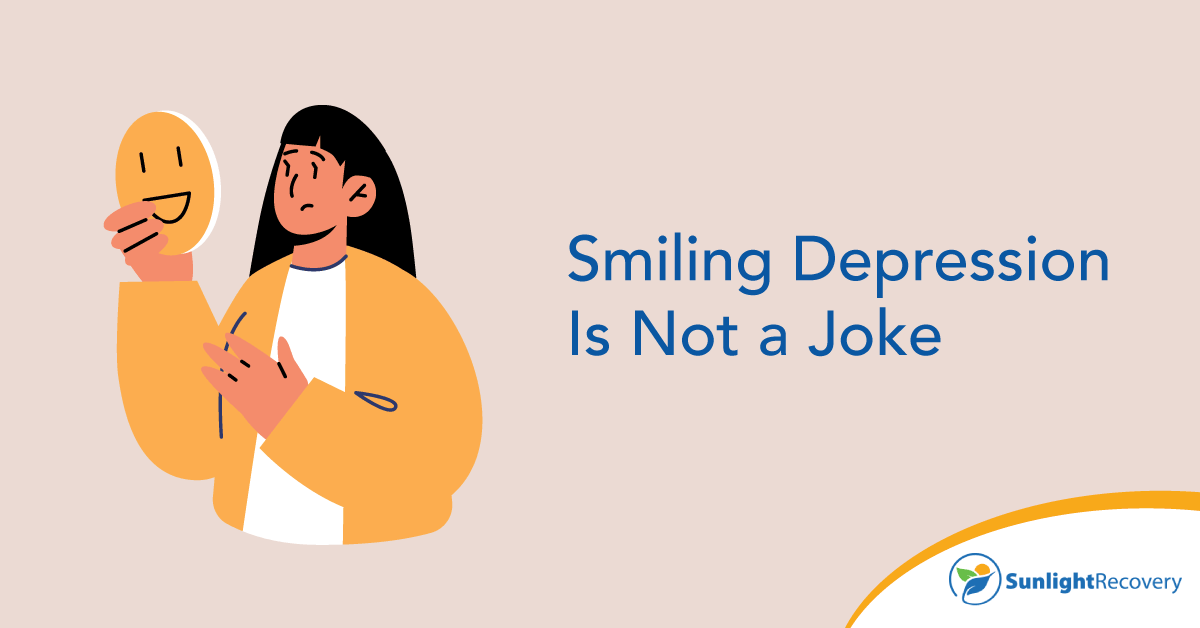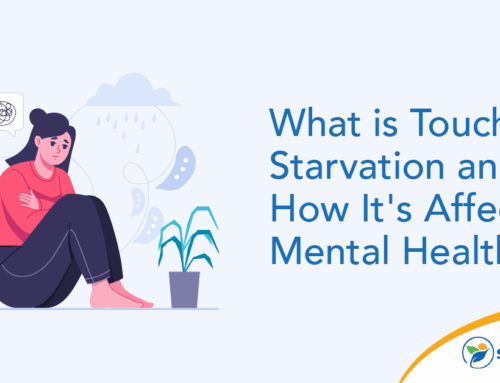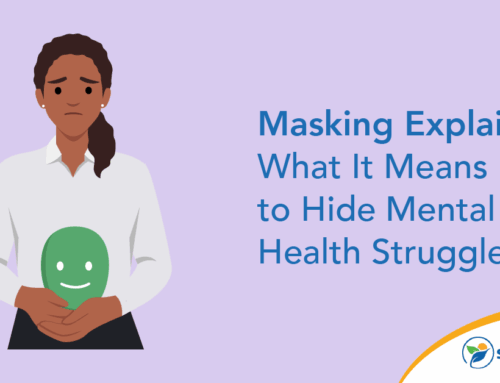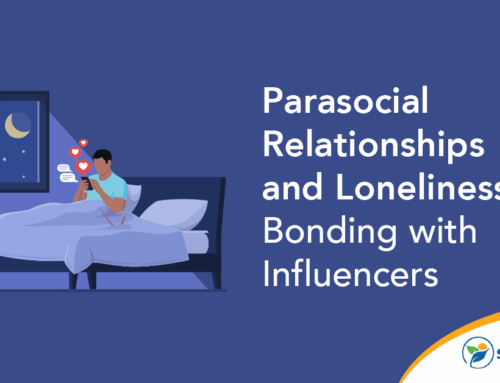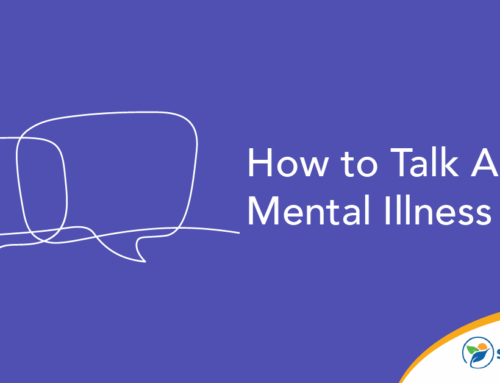The world was shocked when one of its greatest comedians, Robin Williams, committed suicide. He appeared to the outside world to be a happy, successful, talented person. But in reality, he struggled with severe depression and anxiety. Robin Williams is an excellent example of a case of smiling depression. Read on to discover what this condition is and learn about smiling depression symptoms, causes and potential solutions.
What Is Smiling Depression?
Smiling depression, also known as hidden depression or smile mask syndrome, is when someone appears outwardly happy and cheerful but suffers from depression on the inside. An individual with smiling depression has high-functioning depression. Some people who are depressed may struggle to take a shower or fake happiness, so their condition is pretty evident to those around them. In contrast, people with smiling depression can fool others into thinking nothing’s wrong despite feeling incredibly depressed.
Smiling Depression Symptoms
Smiling depression symptoms are similar to those of other forms of depression, but the person can hide these symptoms in social settings. Common symptoms include:
- Anxiety
- Feelings of hopelessness, pessimism and emptiness
- Feeling frustrated, angry and irritable
- Feeling worthless
- Nonstop sadness
- Losing interest in activities that used to bring joy, like hobbies
- Constant fatigue
- Difficulties concentrating
- Sleep issues
- Dramatic appetite changes
- Unexplained digestive issues
- Physical aches, headaches and cramps
- Suicidal thoughts
Smiling Depression Causes
According to the National Institute on Mental Health, approximately 21 million American adults, or 8.3% of the population, reported having at least one major depressive episode in 2021.
Depression is widespread and can happen for many reasons. But smiling depression tends to occur in specific subsets of people who, for various reasons, feel they can’t show their depressive symptoms to the world.
Mental health professionals have noted that smiling depression is common in:
- Individuals from cultures that have a stigmatized perception of mental health conditions. This includes depression.
- People who suffer from a form of depression called persistent depressive disorder. This type of depression can last years, so individuals begin to learn how to live with and mask their symptoms.
- Perfectionists who can’t bear the idea of others knowing their problems.
- People with limited knowledge of depression who might not even realize they have the condition. Instead, they think everyone else typically feels this way and covers up their feelings in social settings.
- People concerned about burdening others or who feel others might have expectations of them. As a result, they make an effort to hide their depression.
Guilt can be a contributing factor to smiling depression. A person doesn’t need to have a “reason” to have depression; it could be from a combination of things or something such as genetics. But, if the individual thinks their life is “good,” they could feel guilty about having any feelings of depression at all.
The Risks of Smiling Depression
Some people learning about smiling depression might think the condition has benefits. After all, we all know that old saying that if you force yourself to smile, you’ll actually start feeling happy after a while. But pretending to be happy when depressed isn’t the solution.
Smiling depression is just as dangerous as any other form of depression, including having the risk of suicidal ideation and death if left untreated for too long. However, since this form of depression is hidden so well by the individual, it can be much more difficult to catch. Even close friends may not realize the cheery persona is all a facade, so they can’t step in and encourage the person to get help.
As a result, some experts theorize smiling depression may pose a greater lethal risk because it can go undetected and untreated longer.
Treatment Options for Smiling Depression
Smiling depression and other forms of depression have the same treatment options. The good news is depression is highly treatable, and those who get professional help can see a difference in a few weeks or months.
Therapy
Overall, the best treatment option for depression is therapy. A therapist can help the patient work through their thoughts and feelings and learn coping skills to deal with depressive symptoms as they arise.
For individuals with smiling depression, a therapist can also help work through why the patient feels they can’t share their authentic self with the external world. At the very least, an individual must feel comfortable sharing their emotions — good or bad — with those closest to them. Therapy can help people learn how to open themselves up to those who love them.
Medication
Medication, such as antidepressants, is an optional approach. The individual and their therapist or doctor work together to understand if this is the best approach.
Antidepressants can be highly effective, but finding the brand and dosage that fits the individual’s needs usually takes a few attempts. Some people mistakenly believe antidepressants change an individual’s personality, dull their light or turn them into a zombie. This should never be the case. Antidepressants should only make a person feel better. If a person feels any other side effects, this is likely a sign their medication needs to be changed.
Still, medication isn’t always necessary. Trying this form of treatment is ultimately the individual’s choice.
Lifestyle Changes
When it comes to depression, the most effective options for treatment are therapy and medication. However, lifestyle changes may help further recovery. While they can’t treat depression by themselves, lifestyle changes should always be viewed as additional steps that could be beneficial.
Here are some lifestyle changes that can help with all forms of depression, including smiling depression:
- Getting daily exercise
- Having a healthy diet
- Getting at least 7-8 hours of restful sleep every night
- Meditating, journaling or taking yoga classes
- Spending time with friends and family
- Reducing stress
- Practicing gratitude
Taking the Mask Off
No one has to live with depression forever, and you don’t have to continue to trick the world into thinking you’re fine every day. The better solution is to get the help you need. You can be the smiling, happy version of yourself that you present to the world if you seek professional help.
Mental Health Treatment at Sunlight Recovery
If you or someone you know is suffering from depression, it’s time to seek help today. When left untreated, depression can be a dangerous condition.
Sunlight Recovery offers mental health treatment for various conditions from trained, experienced staff on site. Contact us today, and get on the road to a happier you.


